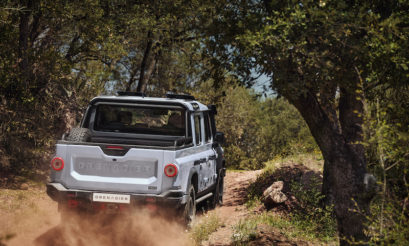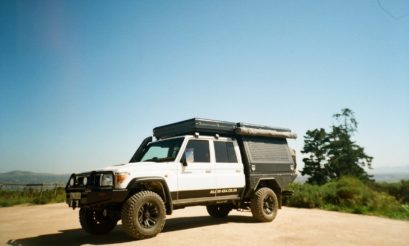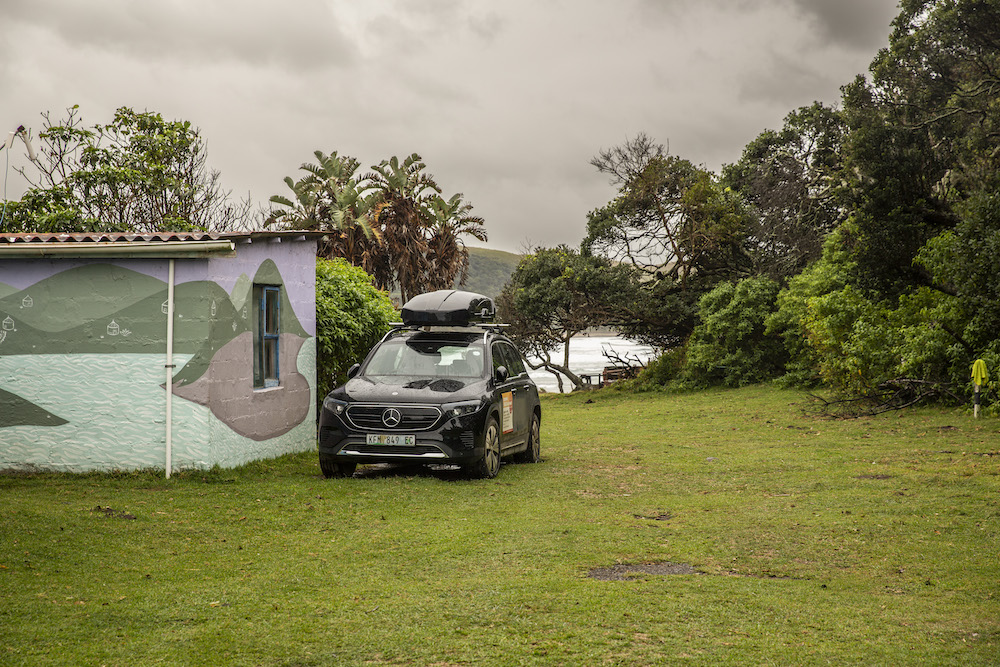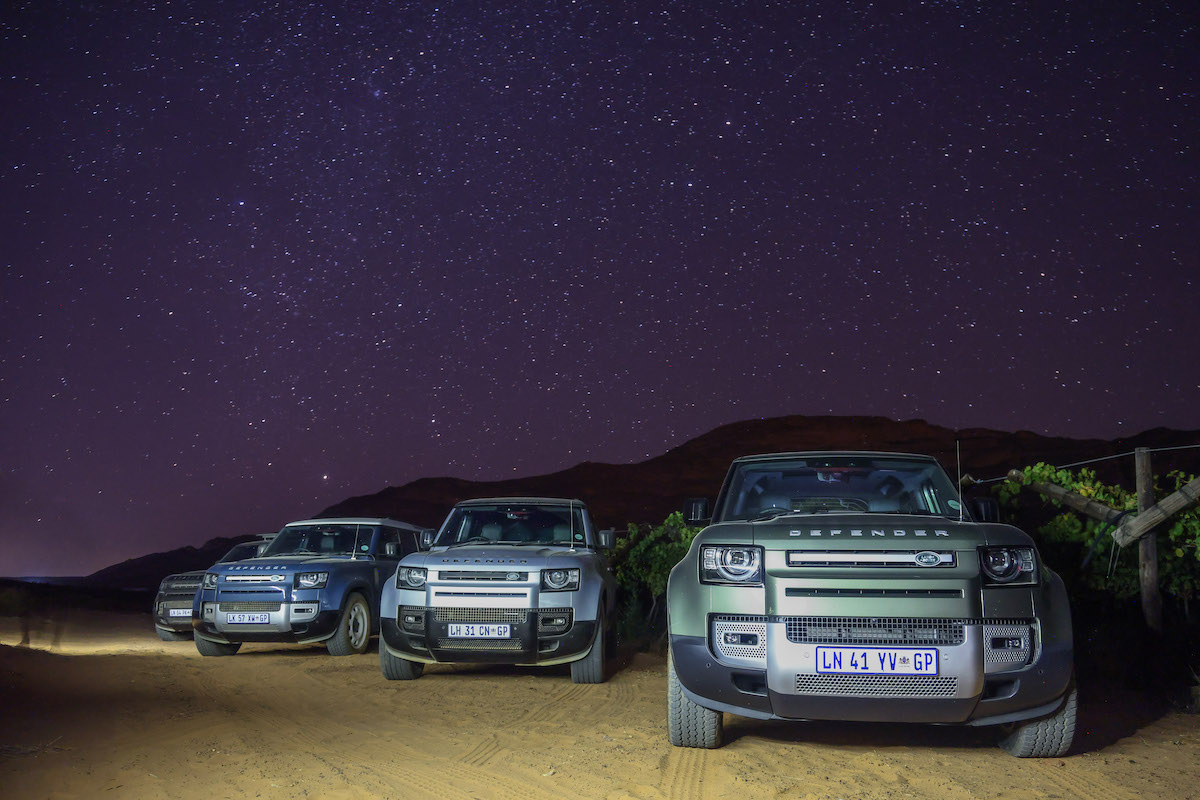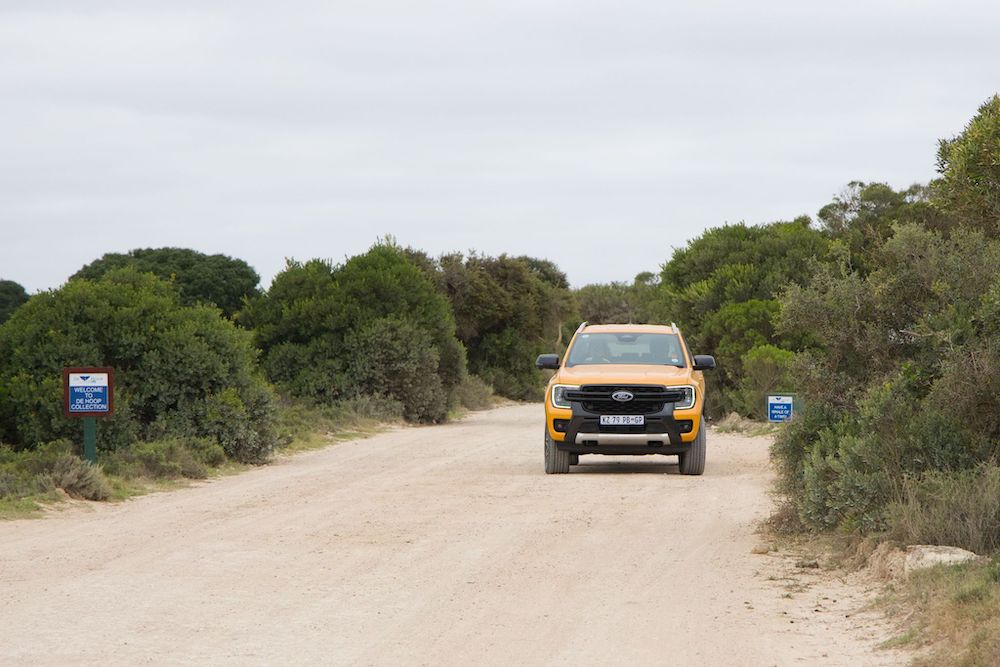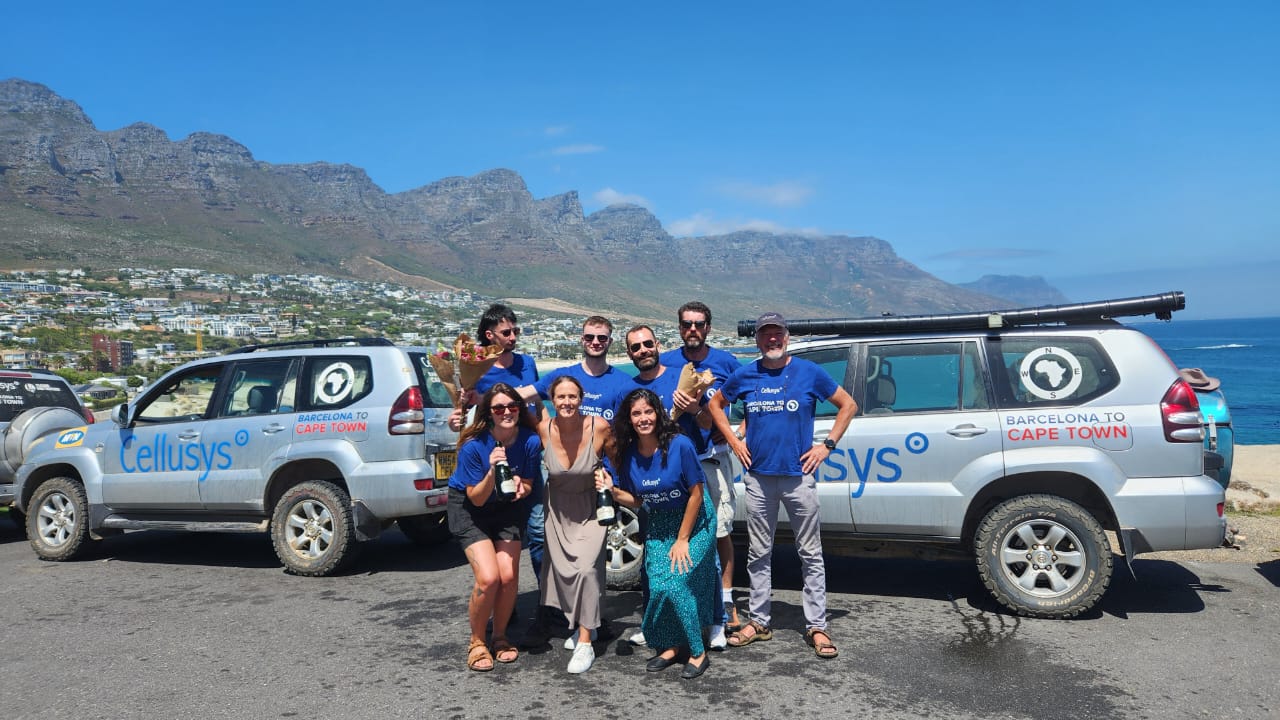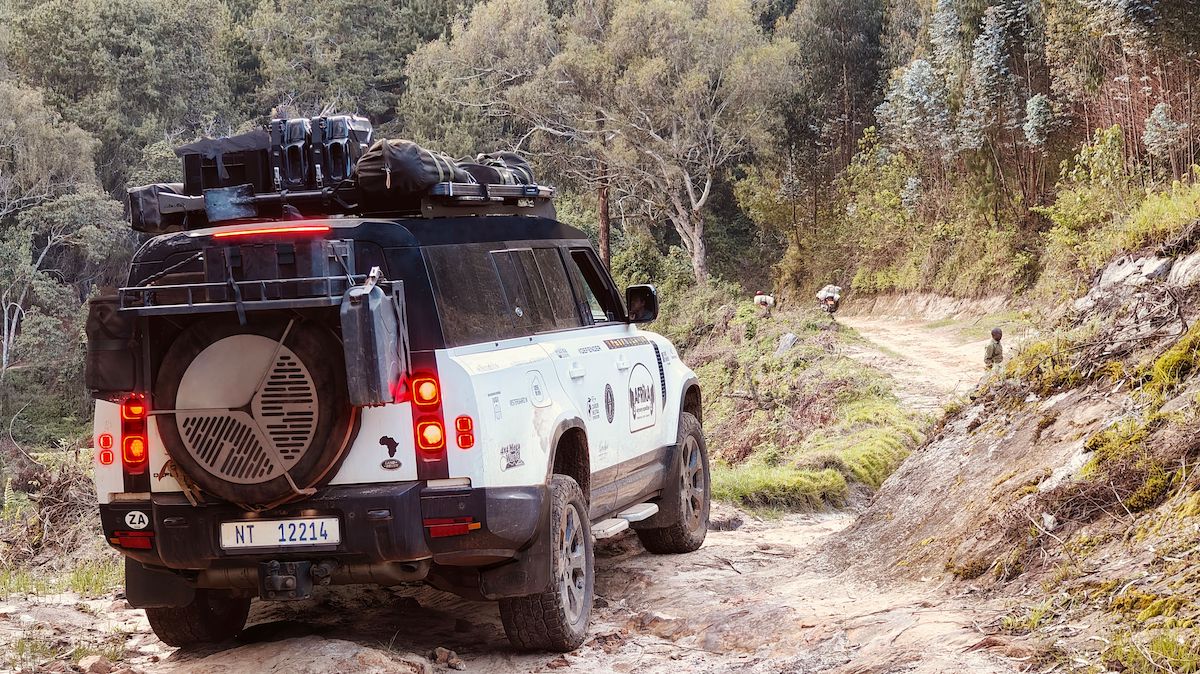Every year, six musicians delight and entertain a small group of incredibly lucky guests, treating them to an intimate
concert of classical music in the African bush. At the same time money is raised to keep that bush safe and intact. This year we were fortunate enough to join the audience on an unforgettable trip
Text and photographs: Inga Hendriks
The sky above the Kruger Park’s Letaba camp is uncharacteristically cloudy for a June winter’s day. Rain clouds have been gathering and dissipating throughout the day and the sun has yet to make its appearance. The concert crowd is hushed, sitting in an open clearing in the bushveld, anticipating the start of the 2008 Sunset Serenade. The rangers are also present, dotted around to keep a watchful eye out for the four-legged residents of the park.
As the first few notes of Bach’s “Air on a G String” float through the Lowveld air, there seems to be a magical transformation. The soft strains of the violin appear to be calling to nature, encouraging her to give herself to this mystical event. A short while later an elephant is spotted, edging closer to the sweet melody.
The audience is enthralled, so entranced by the classical sounds that the elephant goes almost unnoticed, except by the alert rangers.
It is only as Rosemarie Kane plucks a beautiful version of Saint Saens’ “The Swan” on her harp strings that I am brought out of my reverie. There are goosebumps on my arms.
And as the final strains of the last beautiful piece, “Tango”, float across the African bushveld, the moon begins to rise. As if rising with it, the guests spring to their feet to encourage an encore.
The first of the three daily concerts in the 2008 Sunset Serenade draws to a close, and I realise how blessed we are to live in a country where we can create such a special harmony between nature and art.
All funds raised by the Sunset Serenade, sponsored by the Mazda Wildlife Fund, are donated to the honorary rangers, who in turn provide dynamic and practical support to South African National Parks’ counter-poaching units.
Funds are used mainly to ensure good quality equipment for the rangers, field rangers and anti-poaching units.
It is in this light that the Mazda Wildlife Fund donated R100 000 to the honorary rangers at this year’s concert. Hal Feder, president and CEO of Ford Motor Company of Southern Africa (FMCSA) initiated the size of the donation by approaching John Parker, executive vice president Asia, Pacific and Africa, and convincing him to double the existing donation, with Mazda Japan’s help.
“I attended last year’s concert at which the Mazda Wildlife Fund donated R50 000 from both FMCSA and the Mazda dealers,” said Hal. “I was impressed by what I saw, and realised how important it is to support conservation.
“The fund has been a major sponsor of the concert for the past six years. Our normal policy is not to give cash donations. We usually give sponsorship in the form of vehicles and servicing, but in this case we make an exception.
“Rangers are putting their lives at risk dealing with poachers and it’s good to know we can equip them better. It is also gratifying to carry on Henry Ford’s legacy as an avid conservationist.”
But the Mazda Wildlife Fund is not just about classical concerts and wildlife. It was formed in 1990, funded jointly by Mazda dealers and the South African Motor Corporation (Samcor) – now FMCSA – and has invested more than R23 million in conservation projects since its inception.
It supports 32 non-governmental/non-profit organisations in their projects throughout South Africa, including environmental educational projects, research projects and projects involved in the preservation of endangered species and their habitats.
At present, projects are supported by way of 34 vehicles placed with them on a loan basis, renewable annually. All servicing and normal maintenance costs are met by the fund, and vehicles are maintained by Mazda dealers. So far, more than 140 projects have been supported in this way.
Paul Vorster, the fund’s chairman and dealer representative for the past three years, says all projects are run through reputable groups such as the World Wildlife Fund and Eco Schools.
“Projects are chosen based on sustainability, and where no support is received from the government. Education is so important – we want landowners and rangers/researchers to co-exist and work together at making projects succeed. We believe in educating people on eco-sensitivity, ultimately resulting in the projects’ survival.”
Paul has now attended three of the concerts, and firmly believes that Mazda must stay involved. “Seeing the dedication of the rangers and researchers to the environment makes you want to contribute, and make their lives a little easier. It is such a selfless job that seems to consume them.
“They would obviously benefit more if the concert was on a larger scale, but then the intimacy would be lost. I think the answer is to keep the concert as it is, but for big sponsors to give more.”
One Mazda dealer who can’t be kept away from the concerts is Trevor Maher. He and his wife, Heather, were attending for the fifth time.
“We have travelled extensively, and nowhere else in the world can you experience this. It is a sensory overload – a contrast between the ultimate sophistication of world-class music competing for attention against the call of the fish eagle.
“I spend the first half of the year looking forward to the event, and the second half remembering how much I enjoyed it.”
One of the “guys with guns” is section ranger Johann Oelofse, who has 29 years of experience in the Kruger Park. He is grateful to the honorary rangers for all they have provided, and every now and then produces his “wish list” of items that would make the rangers’ lives easier, such as tents, camping equipment, maglight torches and other little things that SANParks’ budget can’t cover.
In the beginning he found the concept of a concert in the park very unusual. In fact, he was quite sceptical. But now – aft er the ninth year of attending with his wife, Jocelyn – he has grown used to the idea. “Jocelyn really enjoys it, and we all know that a happy wife means a happy ranger! Seriously, though, being a ranger is a very demanding job and we rely heavily on our wives for support.”
Guests were given the chance to experience the kind of demands made on the rangers. A brilliant counter-poaching simulation was set up, using the Bantam aircraft (donated last year by the honorary rangers to SANParks) to flush out heavily armed poachers and direct their escape route straight into an awaiting ambush of armed foot rangers. Watching events unfold, I realised how these unsung heroes put their lives at risk so that future generations can enjoy the beauty of our parks.
We also had the fantastic experience of a dawn walk with section ranger Jo Nkuna and ranger William Ndobe. Jo could probably be making millions in Hollywood with his lively character and expressive face, but it was clear that it is his love and passion for the bush that electrify his personality.
Within five minutes we spotted a rhino with her calf, and Jo guided us to within 200m of the oblivious creatures. The rest of the walk was relatively uneventful, but Jo’s enthusiasm and insight on various topics made the two-hour walk flash by. He even demonstrated his morning teeth cleaning ritual, using an “Oral-Bush” toothbrush – the thin branch of a berry-leaf tree. He had me tempted to toss away my modern, battery-operated contraption.
As the start of the second concert on day two draws closer, it seems the word has spread. No coaxing is needed to get nature to attend: the sun heads towards a magnificent exit in bursts of orange and purple, and a buffalo herd gathers on the far banks of the Letaba River, at a safe distance but within earshot of the orchestra.
The rangers are in position, the audience seated and hushed, clasping their G&Ts and wine glasses. The stage is set, and the sweet notes of Henry Mancini’s “Moonlight Serenade” float across the clearing.
Mazda CX-7
For our trip to the park we used a Mazda CX-7, a stylish and dynamic SUV. It doesn’t pretend to be a mud-plugger, but is a sophisticated five-seat family vehicle with an emphasis on performance and comfort – and good looks.
The CX-7 borrows the 2,3-litre MPSi engine from the Mazda6 and 3 MPS, and so you can’t fault it here. With 175 kW and 350 Nm available, it is quick, and the automatic four-wheel-drive system makes it a fun and dynamic drive. A smooth six-speed automatic gearbox is the only option, but it is good enough to convince most drivers that they don’t miss a manual.
Only one, well-specced model is available, complete with leather upholstery, and all the rest of the obligatory luxury features. The recommended retail price is R377 990.
